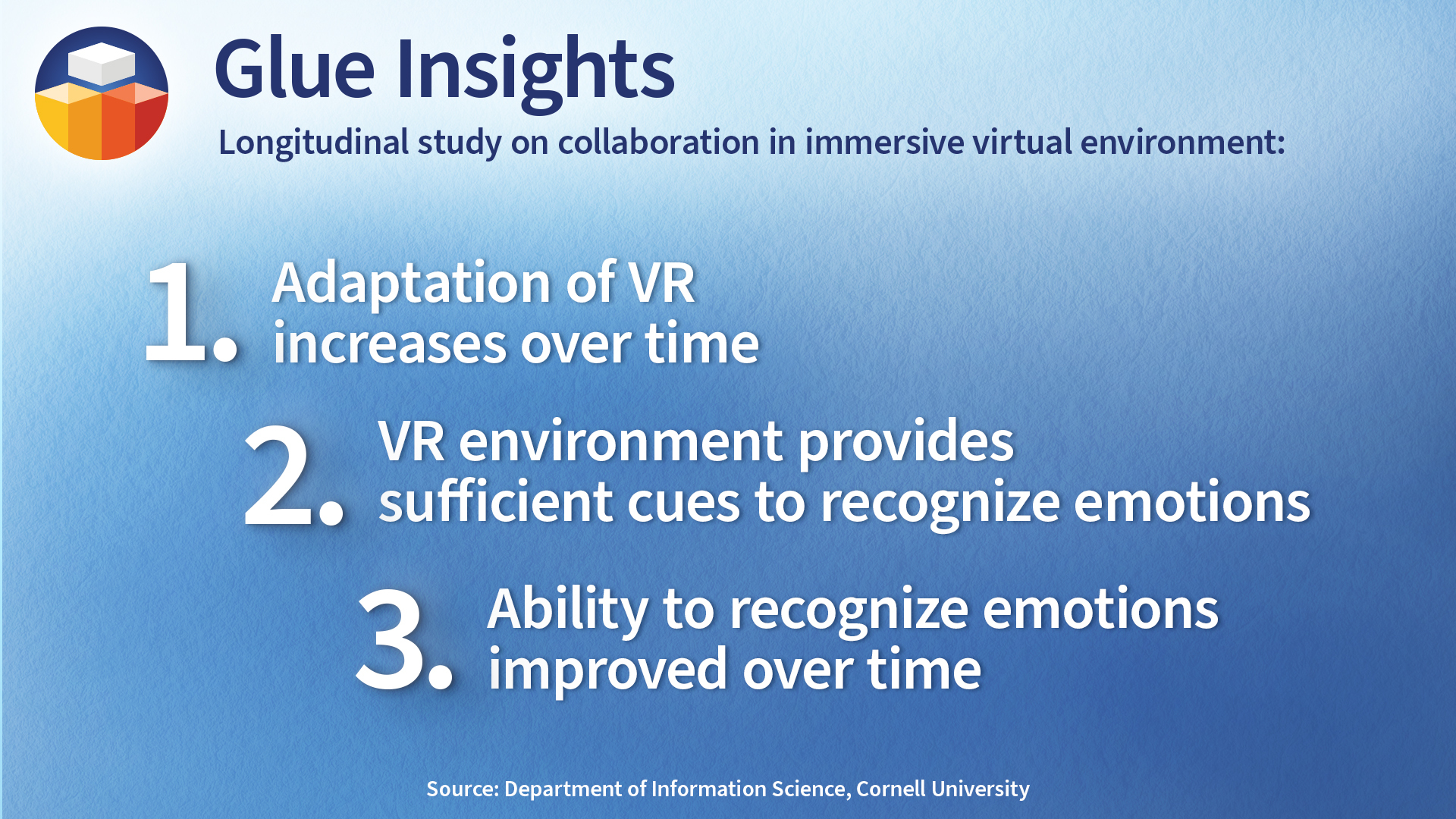Researchers from Cornell University, Negar Khojasteh and Andrea Stevenson Won, have recently published a longitudinal study on collaboration in immersive virtual environments and examine how individual users adapt and work together in VR over time.
Glue Team found 3 interesting data points from the research to share.
1. Adaptation of VR increases over time.
Individuals with no experience in using VR headsets are a bit hesitant to start collaborating in virtual reality at first. The research found out that already after several VR sessions, people feel comfortable using VR headsets and are able to express themselves through avatars easily.
2. VR environment provides sufficient cues to recognise emotions. The results of the study showed that emotional accuracy in VR corresponds with the energy and happiness level of participants, meaning that VR conveys people’s emotions accurately providing a high level of non-verbal communication.
3. The ability to recognise emotions improves over time.
An interesting finding of the research is that users recognise their partners’ emotions accurately as well which creates a sense of social presence, togetherness and increases team cohesion over time.
These are exciting results explaining why virtual reality can deliver great collaboration and make remote team meetings as great as face-to-face. With VR-based collaboration tools like Glue, you can provide a remote collaboration environment for your team and enjoy efficient collaboration.


